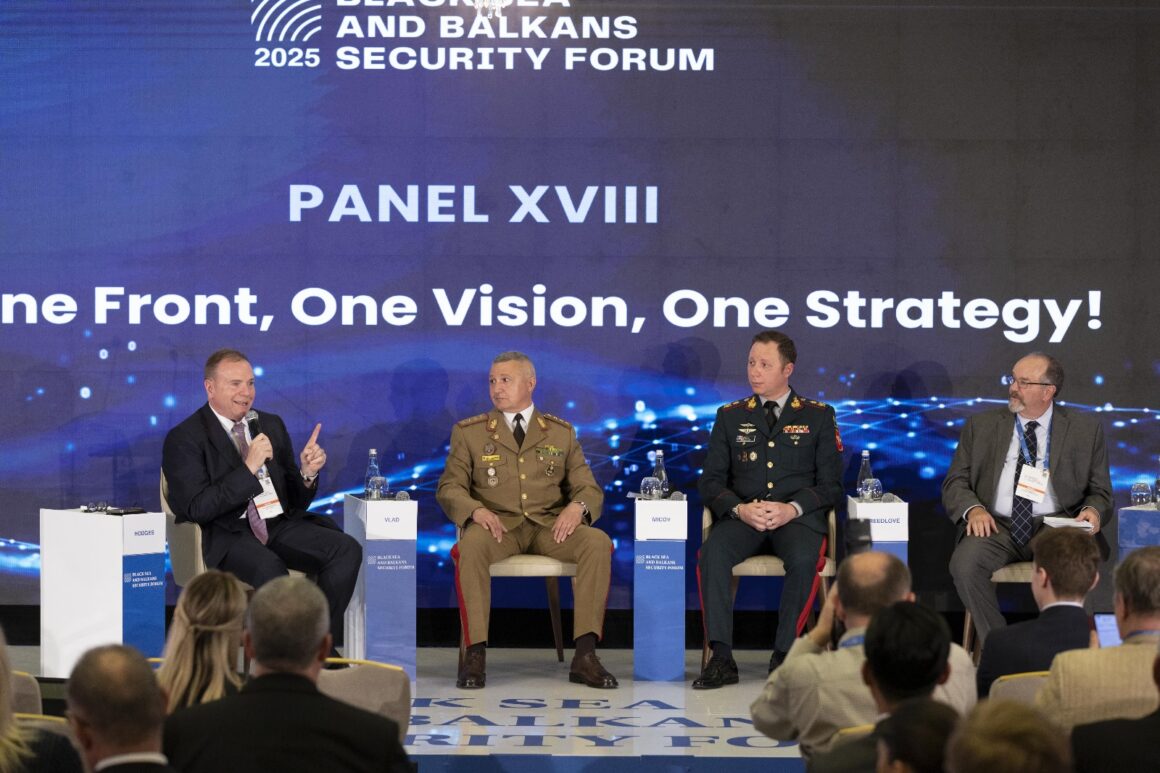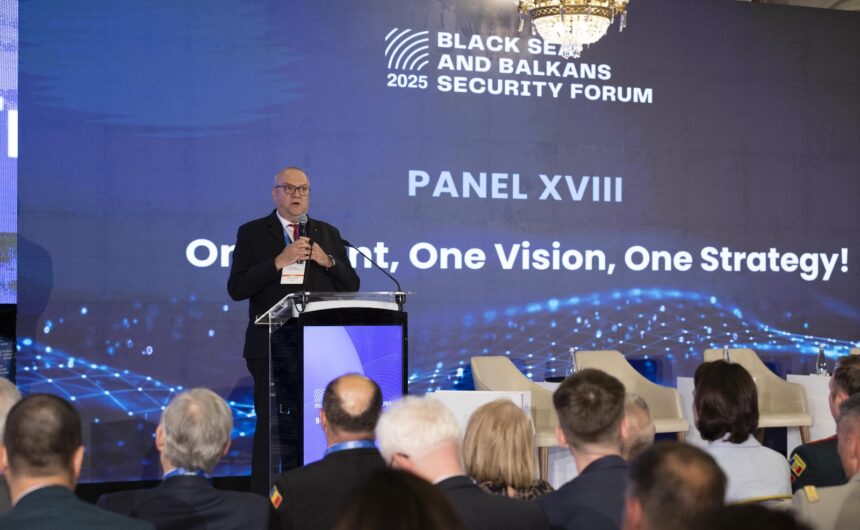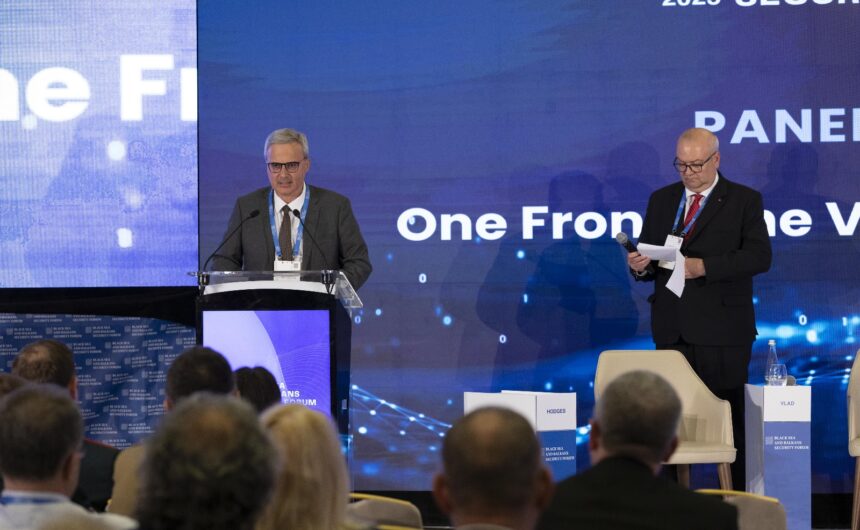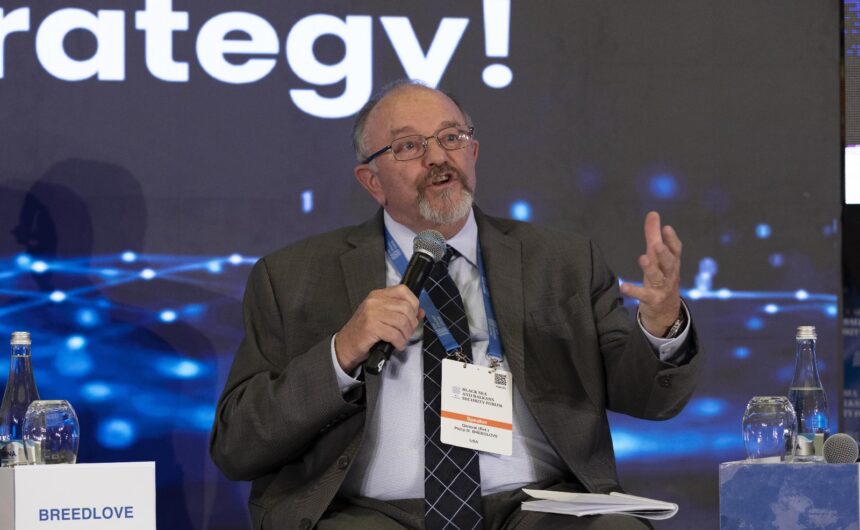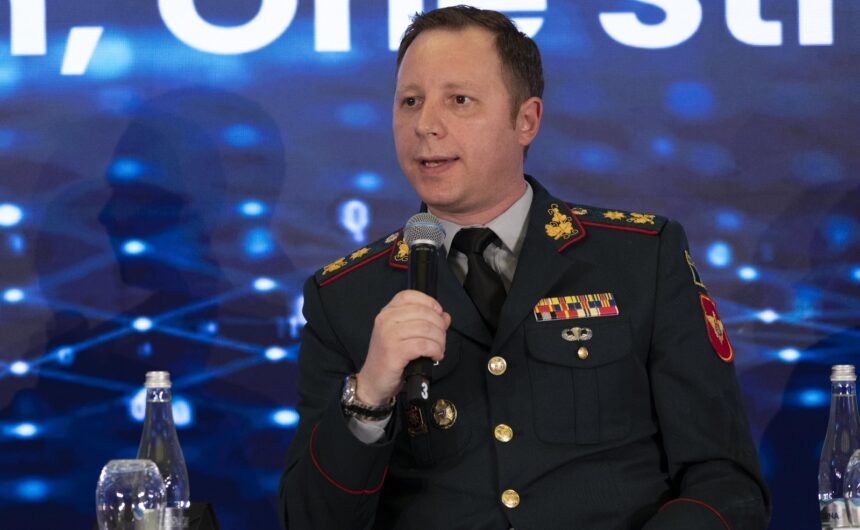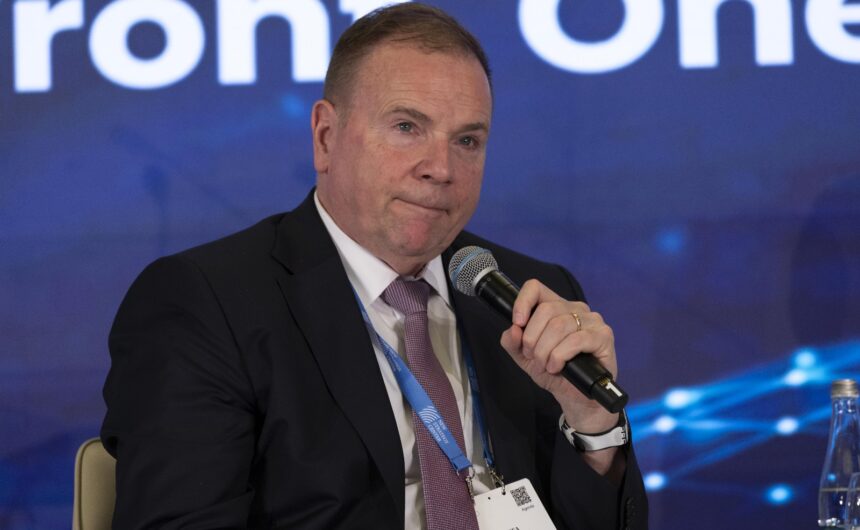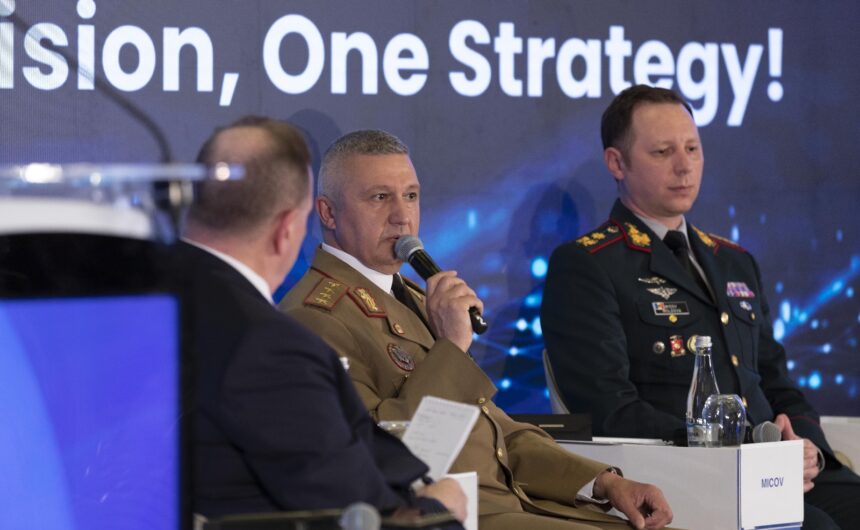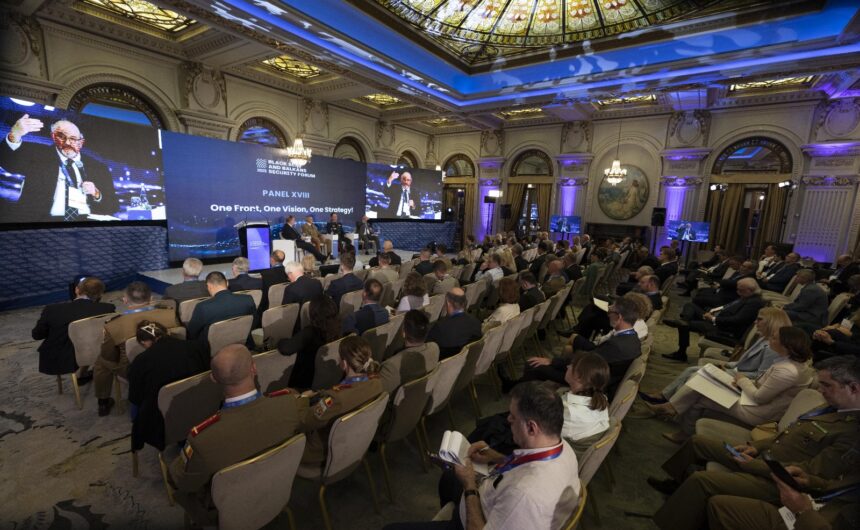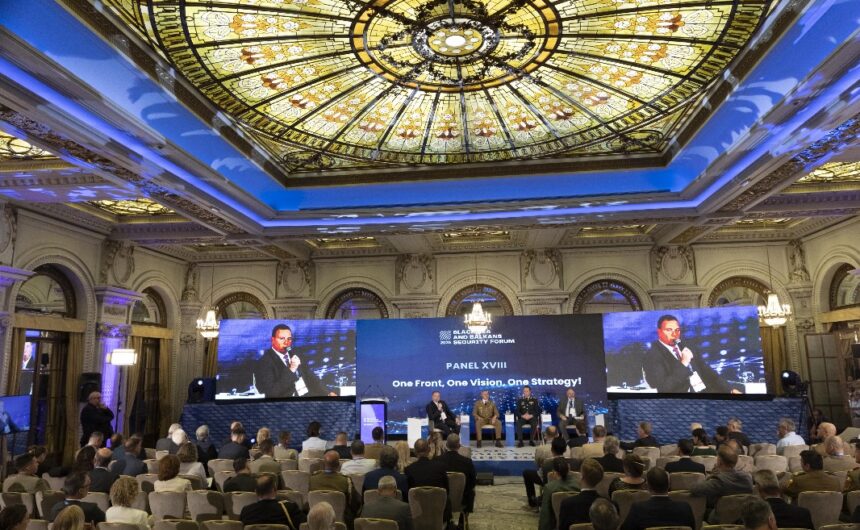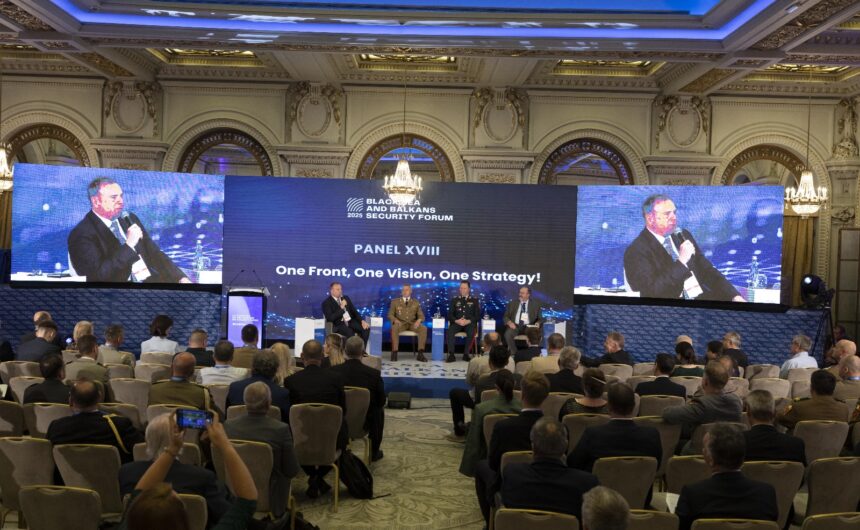The panel was moderated by Lieutenant General (Ret.) Ben HODGES, Member of the International Advisory Board of the New Strategy Center and former Commander of U.S. Army Europe, together with General Gheorghiță VLAD, Chief of Defence of Romania; General Thierry BURKHARD, Chief of Defence of France; Brigadier General Vitalie MICOV, Chief of Defence of the Republic of Moldova; and General (Ret.) Philip M. BREEDLOVE, former Supreme Allied Commander Europe.
This extended intervention offered a range of strategic and operational perspectives on security in Eastern Europe, particularly in the context of the hybrid war waged by the Russian Federation. It was clearly stated that Russia, through its disinformation campaigns, cyberattacks, and interference in electoral processes, is already at war with the West—even if the West is reluctant to openly acknowledge it. The appropriate response must be structured on several levels: in the hybrid (information and cyber) space, through the strengthening of NATO’s eastern flank, and by increasing actual military response capabilities.
One serious example mentioned was the lack of authority for NATO pilots (participating in air policing missions) to act preventively in the face of Russian threats, especially when flying over allied nations that are not their own. This results in absurd situations where allied pilots may witness an imminent attack but have no right to respond unless they are fired upon first. A change from peacetime rules of engagement to active defense rules is being called for.
Moldova is increasingly mentioned as a potential target if Russia succeeds in Ukraine. The Moldovan representative highlighted the state’s vulnerability and its lack of NATO or EU membership, while also emphasizing Moldova’s efforts to strengthen its defense capacity and deepen cooperation with Western partners. A sensitive issue raised was the presence of Russian troops and large ammunition stockpiles in the Transnistria region, seen as a major strategic risk.
Romania was highlighted as a crucial ally in the Black Sea region, due to its strategic position and critical infrastructure such as the Port of Constanța. Recent efforts include modernizing legislation to allow for rapid response capabilities and improving air defense systems. Romania’s contribution to NATO and EU missions in Africa and other regions, as well as its strong partnerships with France, the United States, and other countries, was also underscored.
A key point of debate was air and missile defense, where it was acknowledged that no NATO country is currently prepared to face the type of aerial assaults that Russia launches daily in Ukraine. Existing capabilities are limited and fragmented across strategic, operational, and tactical levels. There is an urgent call for dense sensor networks and interception systems, and for learning from the Ukrainians, who have become leaders in defending against tactical drones.
Finally, it was emphasized that it is far cheaper and more effective to neutralize the launcher before the missile is fired—a metaphor that carries significant weight for future defense policies. It was suggested that in the event of an imminent attack, allied armed forces should have the political mandate to “stop the archer, not just intercept the arrow.” However, this kind of anticipatory response requires firm and pre-established political decisions.
Watch the live session on YouTube: https://youtube.com/live/gjoTKWlhRTc?feature=share

